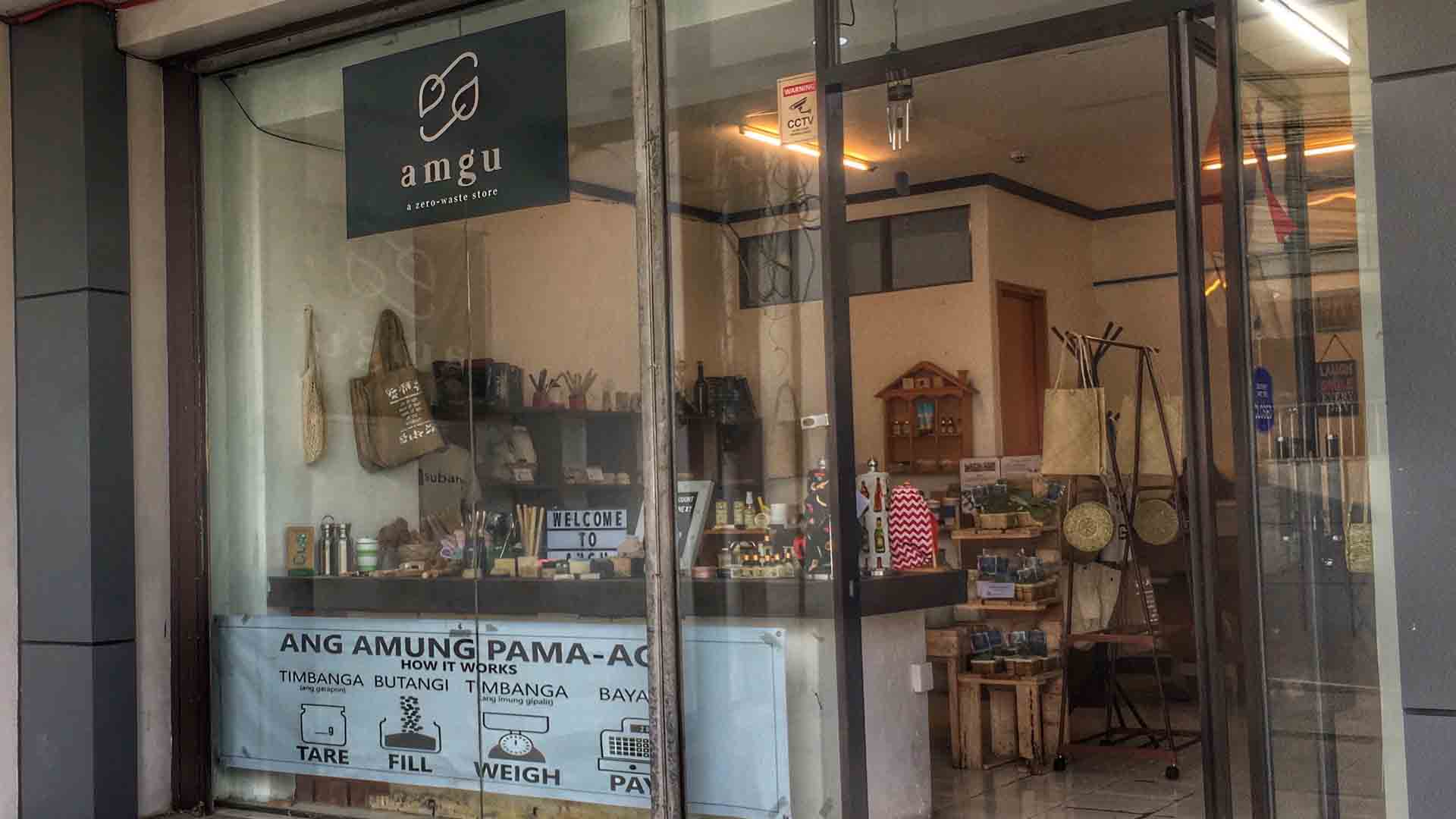“Little steps will go a long way.” This is what Rangi Jory Madarang, or simply Ranj, always reminds herself as she and her business partner Ivy Jane Sumabong strive to influence people with their Zero Waste advocacy through their store called “Amgu” located in Cebu City, Philippines.

In this generation that lives with multi-packaged products, Ranj shared that the biggest challenge is getting people to understand the concept of Zero Waste. “Consumers are used to buying plastic packaged products, and here we are, encouraging everybody to try their best in living Zero Waste,” she said.
The store’s Zero Waste advocacy is complemented by the organic products which they also sell. But what makes Amgu click is its concept which is close to the heart of most Filipinos who are used to buying products in sachets to fit with their weekly needs and budget.
“We do refills. When you buy something, you just fill your container or buy the quantity that you need,” Ranj explained. “We wanted to give convenience to those who want to buy organic products without worrying [about] spending a lot,” she added.
Indeed, Amgu’s clients frequently return to the store to refill their household products, personal care, super foods, and eco-friendly items.
Awareness on board
“Amgu” in Cebuano means “awareness” and Ranj is happy to note that the store is indeed living up to its name. “Amgu’s largest consumers are people who are aware of how plastic is affecting the environment,” she said.
Ranj relates that the people’s response to Amgu has been great. Sometimes people who are not familiar with Zero Waste visit the store and come out with a working knowledge on the concept.

“They are amazed with all the learning inside the store, and then they come back and become our regulars,” she happily shared. “It’s fulfilling to see repeat customers doing their groceries here, and bringing their own eco-bags and containers.”
Ranj and Ivy don’t get tired of educating their customers on the store’s purpose, what it is fighting for, and who will benefit from it. “We need everybody to understand that the business stands for a sole purpose: [to] make this planet a better and cleaner place to live in for our generation and most especially for the generations to come.”
In fact, a team of Grades 4 to 6 pupils were the very first group of students who visited the store. “They were part of our Urban Backpacking Challenge who were tasked to do problem solving using our refills. We did a small talk on sustainability, showed plastic-free products, and taught them how a small step in saving the planet goes a long way,” Ranj shared.
Pandemic woes and lessons
COVID-19 brought with it difficult challenges that Ranj and Ivy had to overcome. Eco bags ran out as suppliers stopped their operations, but they did not let this deter them.
“We decided to post on social media that we needed paper bags for our packaging. Then the next day, donations came in and soon we had over a hundred paper bags, bottles, and jars that we could use for packaging,” she shared.

The pandemic brought in precious lessons for the Amgu owners. First and foremost, they realized the need to have contingency planning for business continuity.
“In situations like the COVID-19 pandemic, one should look for ways to make sure that the business stays afloat,” she said. “To keep the business running despite limited consumer visits, we offered delivery as an option.”
Creativity and resiliency are two important things that Ranj also learned. Sourcing some products became a challenge, mainly because of border restrictions, so they learned to produce some products on their own.
Perseverance has also proven to be a key value. “Everybody is struggling, but you just need to keep going. Stand up and take that single step to continue where you left off,” she advised.
Because of the shortage of supplies during the pandemic, Ranj enrolled in several training sessions on how to make personal care items like soaps, toothpaste/toothpowder, serums, and body oils.
“Because the focus was on Zero Waste, the sessions helped me on how to pitch these products so consumers would just buy in refills and stop buying new ones with attractive packaging that would just end up being thrown away,” she says.
For the next five to 10 years, Ranj envisions herself still making their own products and teaching communities on how to live sustainably. “I will continue to show them that there are many ways to lessen our waste,” she said, adding that she would also love to see more Amgu stores around Cebu and the neighboring islands.
“Nature is greatly affected by our actions,” she said. “If we continue to patronize products that are harmful to the environment it’s going to be us who will suffer.”







